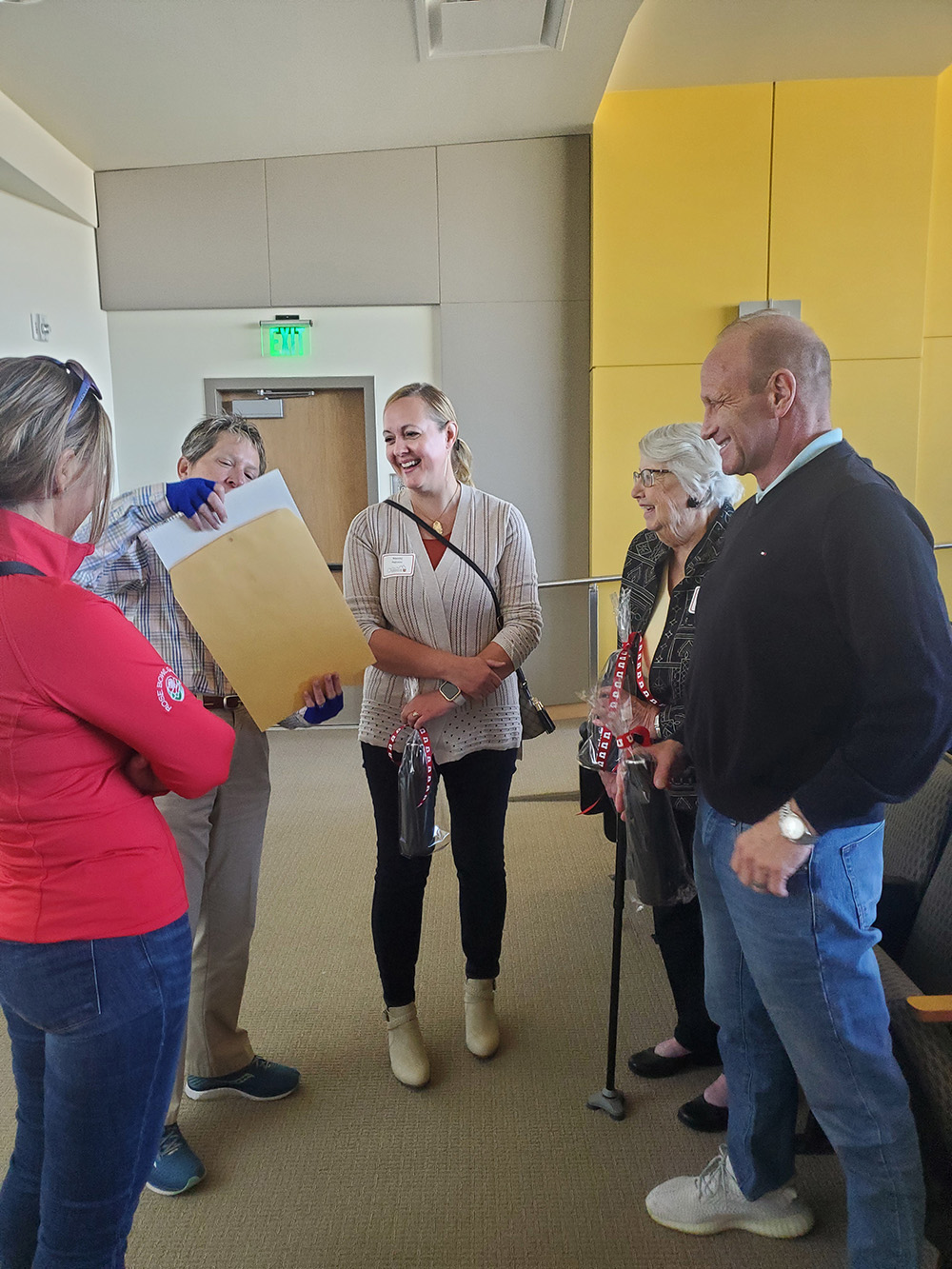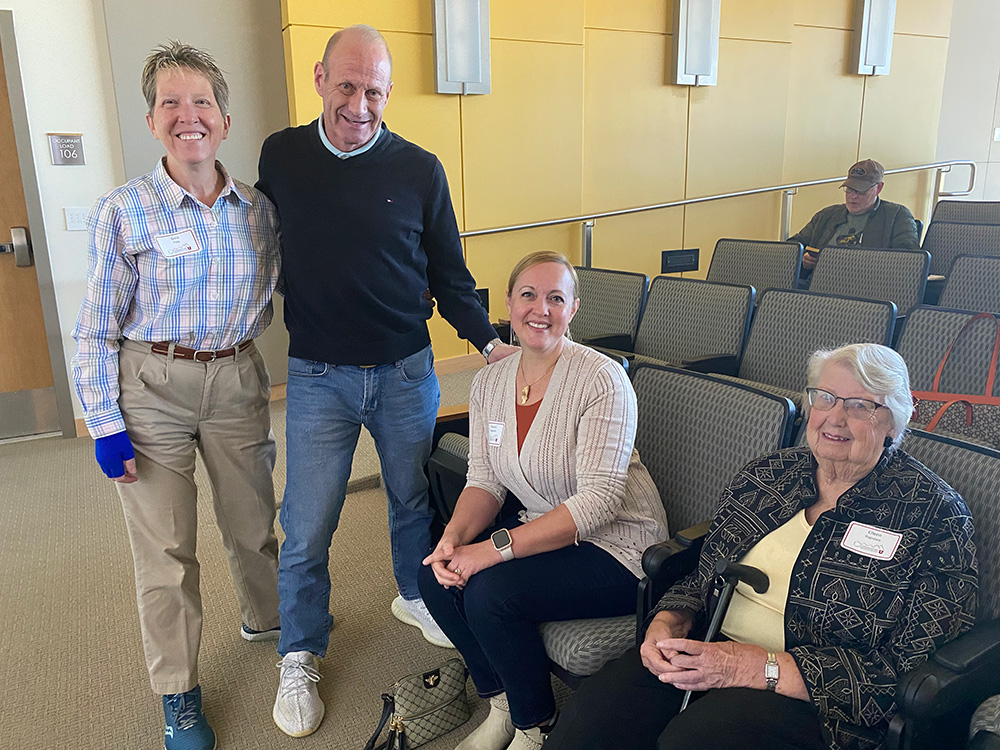High-school Chemistry Teachers Workshop
 |
 |
 |
On Saturday, October 7, we held our semi-annual high-school chemistry teachers’ workshop
in the Department of Chemistry at the University of Utah. Organized by Michael Morse,
the Saturday morning event brought together approximately 50 participants comprising
high-school chemistry teachers from around the region, several chemistry department
faculty members, and a number of University of Utah chemistry majors who are studying
to be high-school chemistry teachers. The workshop promotes learning about and discussing
ideas about the teaching of chemistry. This event is becoming like a reunion with
many returning teachers and Eileen Ragsdale, her son Steve Ragsdale, and his wife
Naomi participating with us. We were also very excited to see so many new teachers
at the event! 
Attendance at the workshop counts toward continuing teacher education. It is designed to help Utah chemistry teachers learn more about specific chemistry topics they want to hear about and bring in leaders in chemistry education to provide their insights. With a line-up of Chemistry Department faculty, the program consisted of three presentations: Michael Morse gave a wonderful start to the morning with “Reaction Mechanisms”, where we learned about how to determine a reaction rate given a proposed mechanism for a number of different types of reactions and a surprise section discussing how to “push electrons” to propose mechanisms. As usual, one learns much from Michael’s talks, and he is a joy to listen to.
We were fortunate to have Ryan Looper come and tell us about the “Drug Discovery Process.”
Ryan gave a stimulating talk taking us through the drug-discovery process, using well-known
drugs, from the development of molecules having possible therapeutic behavior in the
research laboratory through preclinical research, clinical development, and FDA approval.
After first telling us that all current antibiotics attack bacteria in only three
different ways and informing us that bacteria are winning the race to develop resistance
to all three classes of drugs, Ryan told us that there is hope we can win the race
against bacteria after all. The exciting ending of his talk told us about a new drug
molecule produced in his lab that attacks the bacterium in a completely new way. This
could potentially create an entirely new category of therapeutic drugs that could
overcome multiply resistant bacteria that are unaffected by current antibiotics. He
then described the next steps for this molecule in the drug-discovery process, starting
with having the patent approved. 
The morning talks ended with Gina Frey discussing "What Students Say Makes Them Feel Like They Belong." Having found that social belonging affects student performance and retention in introductory courses (i.e., general chemistry, organic chemistry, and introductory physics), Frey’s group is asking students what makes them feel like they belong in a course and using these ideas to help teachers improve the course environment. As usual, the discussions during the presentations were lively, with great questions and comments.
During the workshop, engaging conversations continued during the break and lunch, creating a local community of teaching and learning. We will be holding the following workshop this spring (2024). We look forward to seeing all the high-school teachers, the undergraduate chemistry majors, and the Ragsdale family again, and we invite interested chemistry graduate students and faculty in the department to join us.
 |
 |
